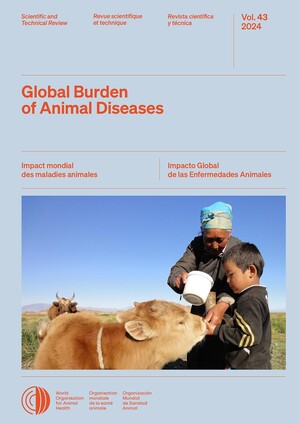
Forging multi-sectoral partnerships to tackle malnutrition in Kenya

Nutritionists and Behaviour Change Communications Specialists at an AVCD Nutrition Strategy Workshop in Kenya. Photo: S.Mungai (ILRI)
Exploring how best to approach multi-sectoral collaboration and how to develop a comprehensive, robust nutrition strategy that is in line with the priorities of the Kenyan government were the issues explored at a two-day workshop recently.
The multi-sectoral partnership with agriculture, health and education sectors, is being used in Kenya to mainstream nutrition into agricultural development with the aim to reduce malnutrition in the country. This is being attempted through a range of activities, from developing and promoting production and consumption of nutritious crops such as millets, sorghum and legumes; bio-fortification, to partnering with stakeholders to mainstream health, agriculture, nutrition education and women empowerment.
The workshop brought together nutritionists and behavior change communications specialists from different agencies and government programs in the country. Some outcomes of the workshop include:
- Project team to engage more stakeholders at the national nutrition sector coordination platform and support the coordination structures in the counties for nutrition programs
- Ministry representatives promised to engage in all opportunities that they identified, and that contribute to their priorities at national and county level
- Nutrition actors promised to conduct joint planning of activities in the same areas
- Project team will engage private sector to enhance market linkages and create the demand pull for nutritious products.
“Our desire is to have a coordinated approach so that we can leverage at points of convergence and engage where there was divergence so as to contribute to improving nutritional status of women and children in Feed the Future Zones of Influence in the country,” said Ms Esther Omosa, Senior Nutrition Specialist, Kenya Accelerated Value Chain Development Program (AVCD), who facilitated the workshop.
In his opening remark, Dr Iain Wright, Deputy Director General, ILRI, stressed that determinants of malnutrition are multifaceted, ranging from individual health status; household access to safe, nutritious, and diverse foods; water, sanitation, and hygiene (WASH); to feeding and caring practices; and family size and birth intervals. “In the past, many nutrition initiatives have been vertical programs implemented through isolated delivery systems; however, there has been a recent recognition that multi-factorial causation is best addressed with multi-sectoral interventions,” he said.
The AVCD project seeks to address the underlying causes of malnutrition through nutrition sensitive interventions in 21 counties in Kenya. The aim is to improve the nutritional status of women of reproductive age and children below 5 years through:
- Increase investment in agriculture and nutrition related activities
- Improved access to diverse and quality food and
- Improved utilization of maternal and child health and nutrition services
Representatives from government programs presented priorities in the different ministries and departments. There was an opportunity to learn about and from the nutrition programs in the country, funded by USAID. AVCD implementing partners, International Potato Center (CIP), International Livestock Research Institute (ILRI) and ICRISAT shared their planned activities and sought feedback from the participants.
The workshop held at ILRI Nairobi Campus on 17-18 May was attended by representatives from the United States Agency for International Development (USAID), ILRI, ICRISAT, CIP, Ministry of Health, Ministry of Agriculture, Ministry of Education as well as USAID funded programs including the USAID-Kenya Agricultural Value Chain Enterprises (KAVES), Nutrition and Health Program Plus (NHP plus) and Kenya—Integrated Water, Sanitation, and Hygiene Project (KIWASH).
Read full article click the below link www.icrisat.org/forging-multi-sectoral-partnerships-to-tackle-malnutrition-in-kenya/
















